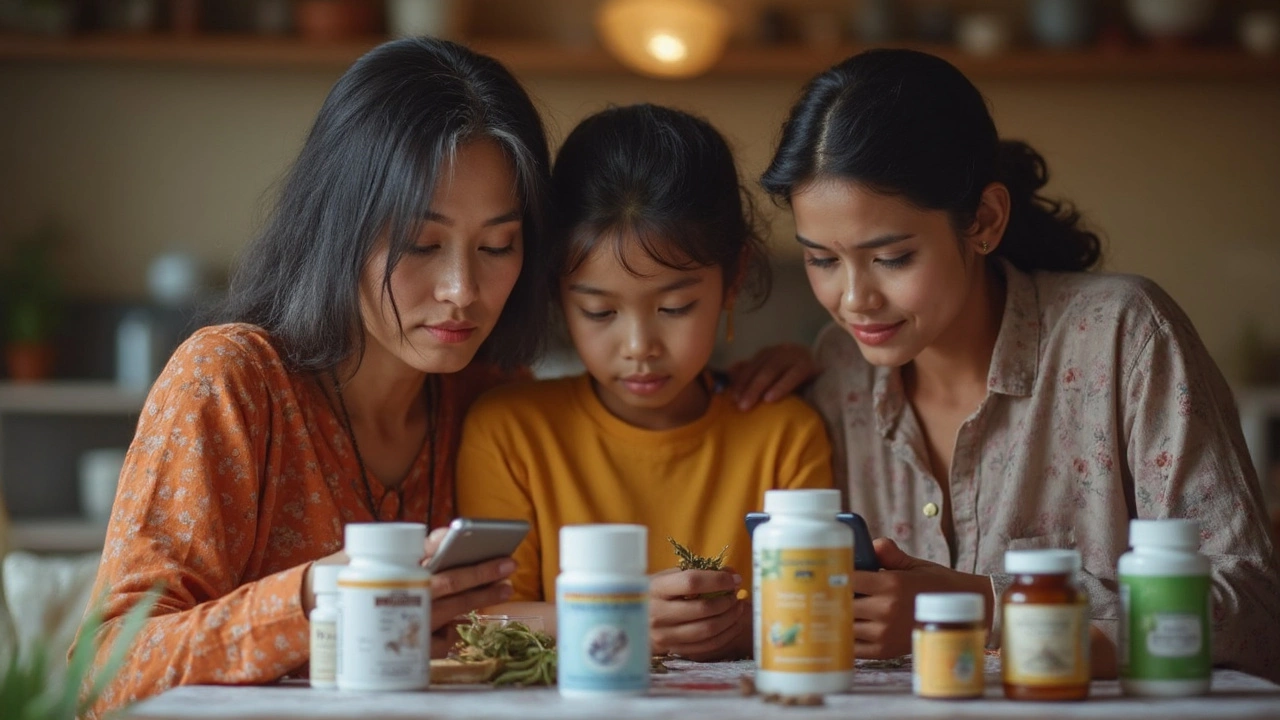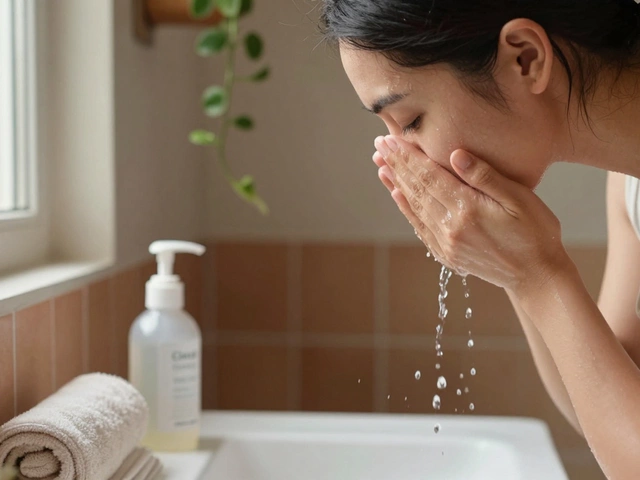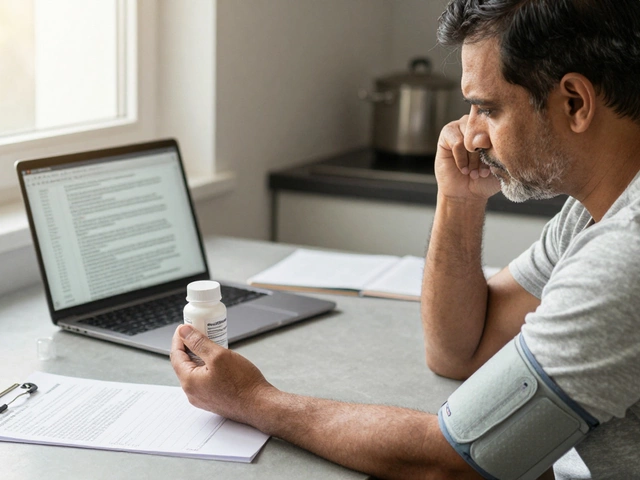Herbal supplements might seem harmless because the word “natural” sounds inviting. But here’s the kicker: just because something comes from a plant doesn’t mean it’s safe for everyone. It’s not just about possible side effects—some supplements can seriously mess with your medications or make certain health problems worse. Every year, emergency rooms see folks with reactions from herbal products they thought were totally safe.
If you’re thinking about grabbing some ginseng or echinacea from the drugstore, pause for a second. Are you on meds for blood pressure or diabetes? Pregnant or breastfeeding? Ever had a weird rash or upset stomach after taking herbal stuff before? These are all red flags. Jumping into herbal supplements blindfolded isn’t a good move if you’ve got any of these going on.
Doctors and pharmacists actually warn people not to just start popping herbal pills without talking to a health pro first. Why? Because herbal supplements aren’t regulated the way prescription drugs are, and what’s on the label isn’t always what’s in the bottle. Plus, certain groups—like folks dealing with chronic illnesses or young kids—are at even bigger risk for bad reactions.
- Hidden Dangers in Herbal Supplements
- When Medications and Herbs Don't Mix
- Why Pregnancy and Herbal Remedies Don’t Always Go Together
- Allergies and Sensitivities—What to Watch For
- How to Stay Safe with Supplements
Hidden Dangers in Herbal Supplements
Herbal supplements have a reputation for being safe just because they’re “natural.” That’s a risky myth. The truth is, these products can pack some real punches—so real that emergency rooms in the US saw over 23,000 visits in a single year due to bad reactions from supplements. That’s not just folks with allergies either. The real dangers come from side effects, hidden ingredients, and how these supplements might mess up your body’s chemistry.
The first red flag? Herbal supplements aren’t regulated like regular medicines. The FDA doesn’t check every bottle before it hits the shelf, so you can’t always count on what’s inside matching what’s on the label. Sometimes products sneak in extra stuff—like prescription drugs, unlisted herbs, or way more of an ingredient than you’d expect.
- Supplements like kava and comfrey have been linked with liver damage.
- Ma huang (ephedra) was so risky, especially for the heart, it got banned in several countries.
- Certain herbs, like St. John’s wort, can crank up or shut down the way your body handles prescription meds.
Another thing to watch for is dosage. “Natural” doesn’t mean you can’t OD. Some herbs interact badly with each other or with stuff you eat daily. Trying out several new supplements at once—without a clue about proper amounts—can set you up for some scary symptoms.
Let’s break down the most common side effects reported from herbal supplements:
| Herb | Possible Side Effect |
|---|---|
| Ginkgo | Bleeding, headaches |
| Licorice root | High blood pressure, low potassium |
| Kava | Liver injury |
| St. John's wort | Upset stomach, mood swings |
| Ephedra (banned) | Stroke, heart attack |
So, even though herbal supplements are popular, they aren’t a “safer” shortcut. If you’re thinking of adding them to your routine, do some homework and talk to a doctor or pharmacist, especially if you’ve got ongoing health issues or take other meds. Getting advice upfront beats a trip to urgent care later.
When Medications and Herbs Don't Mix
This is where things can get serious. Popping herbal supplements on top of your regular meds is like mixing unknown chemicals—you never really know what’s going to happen. Some herbs change the way your body breaks down prescription drugs, which can make your medicine either too weak or way too strong.
For example, St. John’s wort is famous for messing up antidepressants, birth control pills, and even heart medicines. If you’re using a blood thinner like warfarin, even a harmless-looking garlic supplement can lead to bleeding problems. And ginkgo, another popular plant, can make blood thinners much riskier, too. Some herbal teas can bump up or drop your blood pressure if you’re taking heart or hypertension meds.
Combo risks aren’t just for major health issues, either. Even common painkillers like ibuprofen can react badly with certain herbs, putting extra strain on your liver or kidneys. People taking diabetes medicine should steer clear of things like aloe vera pills and ginseng—they may drop your blood sugar way too low.
- Always check with your doctor or pharmacist before starting any new herb, especially if you're on prescription meds.
- Don’t trust friendly advice from the internet or a health food store worker. Everyone’s body and prescription mix is different.
- If you ever start a new supplement and notice dizziness, stomach problems, or odd headaches, stop taking it and call your doc.
Bottom line: mixing herbs with meds can turn a normal day into a trip to urgent care. Always play it safe and double-check everything first.
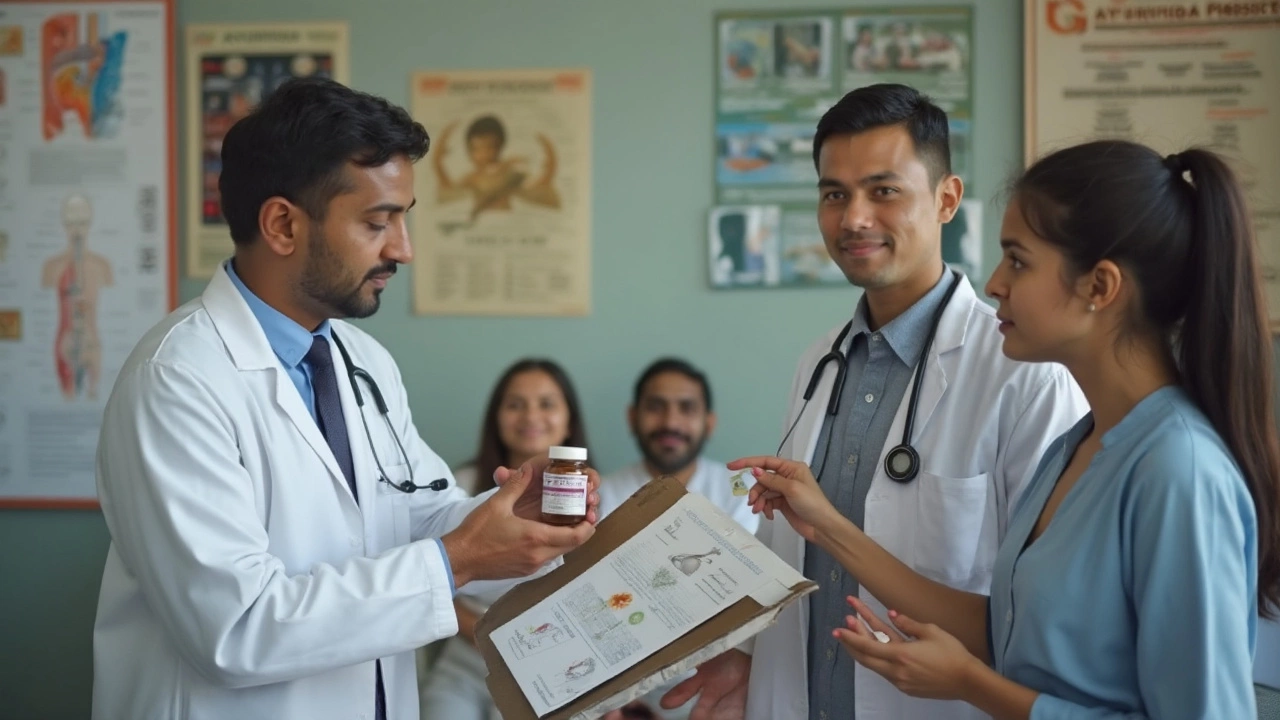
Why Pregnancy and Herbal Remedies Don’t Always Go Together
It’s pretty common for people to reach for herbal teas or natural supplements when they’re pregnant, hoping to calm nausea or get a boost of energy. But here’s where things get risky: pregnancy changes how your body handles anything you put in it—even herbs. And the tough part? Not enough solid research exists to prove that many herbal supplements are totally safe in pregnancy.
Some herbs aren’t just unhelpful; they can be flat-out dangerous for you and the baby. For instance, herbs like blue cohosh and pennyroyal have been linked to birth defects or even miscarriage. Others, such as aloe vera when taken by mouth, might trigger contractions early. Just because your grandmother swore by some “safe” tea doesn’t mean it’s risk-free.
- Herbal supplements don’t go through strict testing like prescription meds—you never quite know what you’re getting.
- The label might not match what’s actually inside. Contamination with heavy metals or other toxins is a real thing.
- Even popular options like ginger or raspberry leaf can interact with other medicines or cause side effects in high doses.
- Doctors sometimes see liver or kidney problems traced back to certain herbal pills used in pregnancy.
Check out the table for a few common herbs and their known risks during pregnancy:
| Herb | Potential Risk | Safety Status (Pregnancy) |
|---|---|---|
| Blue Cohosh | Can cause miscarriage, birth defects | Unsafe |
| Pennyroyal | May trigger labor, organ damage | Unsafe |
| Ginger (high dose) | Can thin blood, possibly risky for bleeding | Use with caution |
| Raspberry Leaf | May start contractions early in pregnancy | Use with caution |
| Aloe Vera (oral use) | Possible uterine contractions | Avoid |
If you’re pregnant or even just thinking about it, always talk with your doctor before reaching for any herbal product. A chat with a healthcare provider is way safer than trusting what you see on a label or website. When it comes to pregnancy and herbs, playing it safe is always better than being sorry down the road.
Allergies and Sensitivities—What to Watch For
Ever notice hives, sneezing, or stomach troubles after trying a new herbal tea or supplement? That’s your body flashing a warning sign. While most people think of food or pollen allergies, herbs like echinacea, chamomile, and even garlic can trigger reactions in sensitive folks. Some of these plants are closely related to common allergens. For example, people allergic to ragweed might react to chamomile or echinacea too.
Herbal supplements can sometimes surprise you—ingredients aren’t always listed clearly on the label, so a capsule of “natural energy blend” could include stuff you’re allergic to and not even know it. Plus, fillers or other hidden additives can bring their own set of problems. Statistics show about 10% of allergic reactions tied to supplements come from these mystery ingredients.
- Herbal supplements like St. John’s wort, saw palmetto, and evening primrose have all been linked to allergic flare-ups in some people.
- Anyone with asthma or a history of strong allergies should approach new herbal products with extra caution.
- Even topical herbs (like creams or oils) can set off skin irritation or swelling if your body doesn’t like the plant.
- If you already know you react badly to certain pollens or spices, double-check the family tree of the herb you’re looking at—cross-reactions are no joke.
If you want a quick look at where herbal allergies tend to show up most, here’s a simple table to keep in mind:
| Herb | Allergy Risk Group | Common Reactions |
|---|---|---|
| Chamomile | Ragweed allergy sufferers | Sneezing, skin rash, swelling |
| Echinacea | Ragweed/pollen allergy | Rash, asthma symptoms |
| Garlic | Food allergies | Digestive upset, skin irritation |
| Ginseng | Herbal sensitivity, asthma | Hives, breathing issues |
| Tea Tree Oil | Skin sensitivity | Redness, itching, blistering |
If you’ve had a bad run-in with an herb before, avoid it altogether. Keep a note on your phone of which ones are trouble for you (it’s easy to forget). No one wants to find out the hard way with a face full of hives or their throat tightening up. When in doubt, check with your doctor or an allergy specialist before trying a new supplement. Your body will thank you for it.
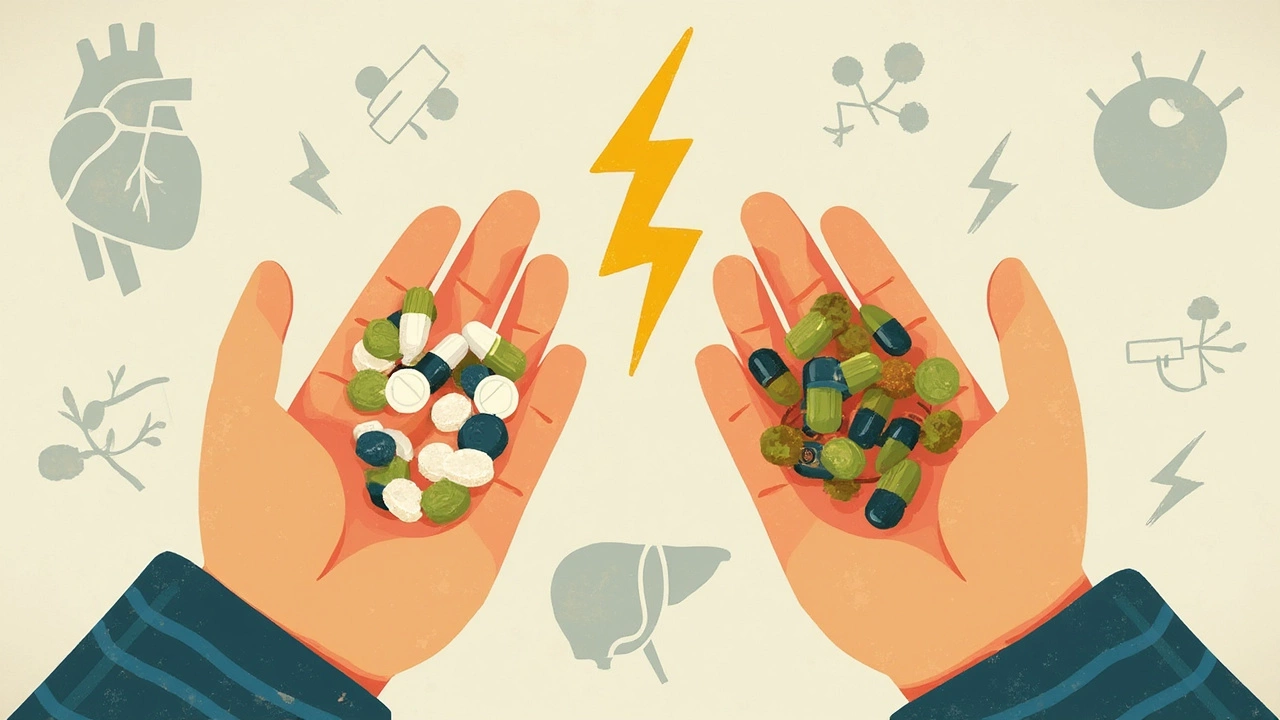
How to Stay Safe with Supplements
Buying a bottle off the shelf isn’t enough—you’ve got to be smart about herbal supplements. Even basic steps can help you dodge nasty surprises or side effects. Let’s break down how you can use these products with less risk.
First up: talk with your healthcare provider before starting any supplement, especially if you take prescription meds, have chronic illnesses, or are pregnant or breastfeeding. Actual studies have shown that around 20% of people who use herbal products never mention them to their doctor. That’s risky—your doctor can spot possible bad combos way better than the internet or friends.
Second, always check what’s really in that bottle. Supplements aren’t regulated the same way as medicines, so what a label says isn’t always what you get. Look for seals from groups like USP (U.S. Pharmacopeia) or NSF, which do third-party testing for safety and real ingredients. But remember, these certifications don’t mean it’s safe for everyone—they just help you know it’s not packed with junk.
- Read serious reviews and look for recalls or FDA warnings about your specific supplement.
- Keep a list of every supplement and medicine you take—share it every time you see your doctor.
- Start with low doses if you absolutely have to try something new, and watch for any weird side effects fast.
It also helps to know which herbal supplements have caused issues in the past. Here’s a quick snapshot of some well-known supplements and their risks:
| Herbal Supplement | Known Risks | Groups to Avoid |
|---|---|---|
| St. John’s Wort | Interferes with antidepressants, birth control pills | People on meds for mood, birth control |
| Ginkgo Biloba | Can cause bleeding, especially with blood thinners | Anyone taking blood thinners, people with bleeding disorders |
| Echinacea | May trigger allergies and worsen autoimmune conditions | Those with autoimmune diseases, allergy sufferers |
| Ginseng | Affects blood sugar, may cause insomnia | People with diabetes, those who have trouble sleeping |
Last tip—if you feel any bad symptoms after using a supplement—like rashes, belly pain, headaches, or mood changes—stop right away. Don’t tough it out. Report the problem to your doctor and, if needed, the FDA’s MedWatch site. This helps everyone stay safer down the line.
Being careful with herbal supplements isn’t about missing out—it’s about making sure you get the benefits without the scary surprises.
